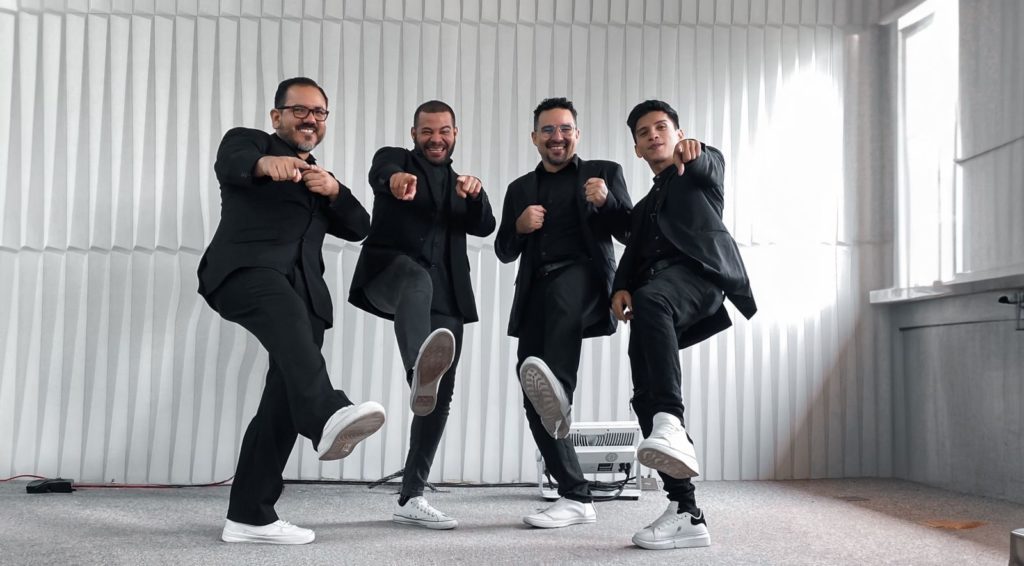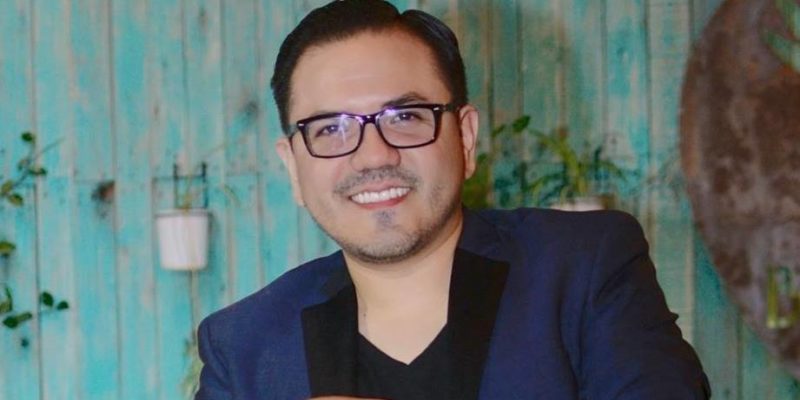Multi-instrumentalist and producer Dorian Mendez, known for his work with the Funky Tones, kindly stopped to by to talk about his musical journey, what inspires him, what his goals are, and plenty more. Here’s the conversation in full.
* * *
Hi Dorian – excited to talk music with you, thanks for your time! To introduce things, who or what first inspired you to learn to make music?
Music has been a part of my life for as long as I can remember. I grew up listening to my parent’s folk group, when they would get together at home in a typical Argentinian “asado” (BBQ) manner. They’re they main responsible people that inspired me to learn to make music. Roadtrips were also a big part of my early music education. We would travel all over the south of Argentina while being exposed to a lot of great music.
What’s your primary instrument or role within the music realm, and how would you describe the style you tend to aim for?
Even though I’m mainly a bass player, I usually feel that the studio is my instrument. Being a music producer is the best way for me to express my art through music. The style I aim for is the sum of all my influences, which would probably be best describe as Fusion World Music, with elements of jazz, funk, soul, r&b, latin and folk music.
What is it about the bass that first drew your interest?
Most people don’t know that the bass was the last instrument I learned to play, but I always felt attracted to the sound and the role of it within the music language. I could say that the way a bass note can define and/or re-define the sound and function of a chord is something that really got my attention, but that is something that took me years to learn and understand, so there has to be something more primal I guess about the reason why I’ve always loved bass.
Who are the Funky Tones, when did the band begin, and how does your work with them differ to your solo projects?
The Funky Tones serve mainly as a platform for artist development. We’ve come up with a business model that’s never been tried before, at least in Bolivia. We offer a band “key in hand” for soloist who can’t form and keep their own band. We’ve been doing it for 10 years approximately and it has allowed us to share stage (or virtual stages) with people from all over the world and, by doing so, we got to play all kinds of music from all over the place. I trust in the other members of The Funky Tones as an extension and improvement of my own creative skills. I really enjoy creating music in my own terms but with them, they function as the spark of my engine.

Tell me about Chaplin Show Theme – A brilliant display of the band’s prowess – What was the motivation and meaning for this, and does it effectively represent your sound as a live act?
Chaplin Show Theme was a great way to prove and showcase what we’re capable of under pressure. I wrote the song trying to emulate the sound of the great house bands of American tv shows, specially from Saturday Night Live, and the result got immortalized as the theme song of the great Chaplin Show, Bolivia’s most important comedy and variety theatre. I think the song is a great example of the energy that we share in our shows.
Is there much of a live scene in Bolivia for this music, and how often do you try to hit the stage?
The live music scene in Bolivia is an emerging one, but alas, one that got hurt by the pandemic. Luckily things have been getting better for live music and we usually hit the stage every week, sometimes as the backing band for other artists and sometimes as ourselves in our own funky shows.
How do you split your time creatively and work-wise as a full-time musician, and what’s your plan of action for 2024?
Lately I’ve been trying to be more selective with the kind of jobs or gigs that I do. I’m blessed enough to be able to work with people from different parts of the world, but sometimes the agenda gets crowded with deadlines and kind of “mechanic” stuff to deliver, and that doesn’t help the creative process at all. So, I try to keep the engine running through different creative outlets; jingles, arrangements, productions, studio sessions as an instrumentalist, etc.
In what ways did becoming a father impact your creativity or your drive and perspective as a musician?
It’s not easy to be a father of three young kids while working at home, and the productive hours have been replaced by much needed and loved family time, but I’m still trying to balance things so I can inspire my kids through music, which I think is one of the most important aspects of the human experience, but at the same time trying to keep things commercially viable, all while trying to keep a happy working wife happy. It’s all part of a process with different stages and I’m trying my best to enjoy the little things that come with such processes.
If you could perform at any event or venue in the world, which would you choose, and why?
I grew up watching most of my favourite bands perform at Montreaux Jazz Festival, so it would be a dream come true and a poetic way to kind of go full circle with my musical journey. Viña Del Mar Festival in Chile would be another great stage to hit.
What’s the best way people can experience and support your music right now?
I’m slowly releasing music that’s been in my computer for years, and it has helped me to connect with wonderful colleagues from around the world. I love the idea of supporting each other by working and collaborating together, so feel free to reach out and maybe we can make music together!
Is there anything else we should know?
Thanks for the interview!
* * *
Find Dorian Mendez on Instagram, Facebook & YouTube.

